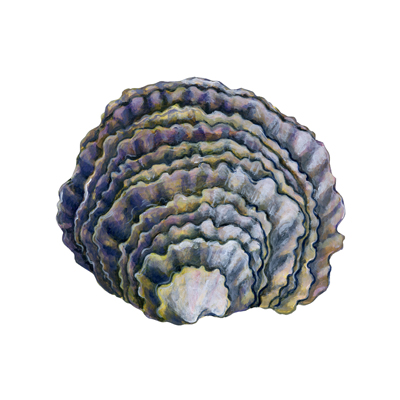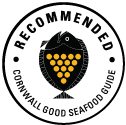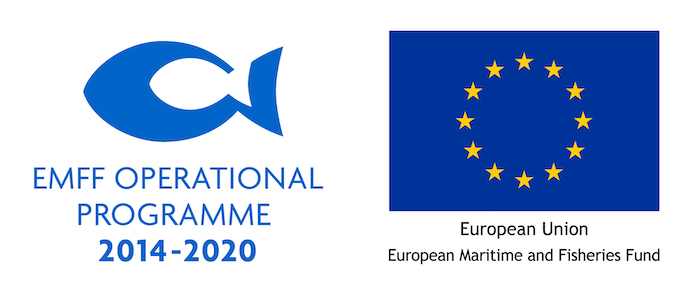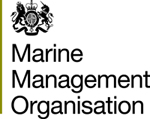

Native oysters are highly prized but across their range they are becoming more and more rare. The stocks of native oyster in Falmouth and the Helford estuary are healthy and in Falmouth the Truro River Oyster fishery (which produces Fal Oysters) is uniquely managed through a bylaw that has effectively frozen the fishery in time by banning the use of motors so that oyster are still collected using traditional sailing and rowing vessels. This makes Fal Oysters highly sustainable as well as a world famous delicacy.
This low impact artisanal fishery is a great example of a the preservation of shellfish stocks through a simple ruling that has also preserved a traditional way of life and created a niche fishery product that has high marketing value. Fal oysters can only be caught under sail and oar, the dredges used are light weight and can only be pulled by hand.
The fishery is managed by Cornwall IFCA. Landings of native oysters have decreased to a very low level in recent years as the traditional export market for native oysters for ongrowing in France has declined - sales were further harmed during the Covid lockdown and increased difficulties with exports since Brexit. There is also evidence that stocks on the oyster beds are at low levels. For this fishery to survive there is real need both to to improve marketing of the oysters to create a better UK market for them, and improving the management of this fishery further to ensure optimal sustainability.
Updated July 2022

Truro river and Fal Estuary
Sustainably harvested using lightweight dredges that are towed by traditional sail boats and rowing boats. The unique management of this fishery has resulted in a sustainable harvesting regime that has kept stocks healthy for 150 years.
Learn moreCornwall Good Seafood Guide rates fish on sustainability using a scale of 1 to 5.
1, 2 and 3 are recommended, Fish to avoid are rated 5.
We use the system devised by the Marine Conservation Society (MCS) so our scores are comparable with the scores produced by MCS for the UK and fisheries from all around the world. For more information on scoring click here.
Native oysters from the Truro river (Fal) oyster fishery are caught using low impact and heavily restricted methods. Lightweight dredges (without teeth) are pulled over the oyster beds slowly as only sail and oar power are permitted, the dredges have to be light enough that they can be hauled up by hand. Average length of tow of an oyster dredge is 6 minutes, this reduces impact and results in very little damage to accidentally by caught invertebrates and shellfish. the contents of the dredges are sorted on the side decks of the boat and after the marketable oysters are removed the shells and unwanted by-catch is returned immediatey un-harmed, over the side back, onto the fishery. Un-marketable oysters which are too small to sell are often placed on lays – these are marked out sections of the intertidal within creeks on the fishery where oysters are allowed to grow before being harvested by hand by the fishermen at a later date. The oyster beds have been fished in this way for centuries and the impact on the seabed is minimal. Oystermen say that dredging actually helps the oysters to grow by reducing sedimentation and removing excessive seaweeds and predators such as spiny starfish. There is need for detailed research to investigate this claim frequently made by fishers.






Cornwall Good Seafood Guide is underpinned by the Marine Conservation Society (MCS) Good Fish Guide. The first UK consumer guide to sustainable seafood. For more information visit www.fishonline.org
Cornwall Good Seafood Guide is here to help us all make sustainable seafood choices. Choices that will help us keep the oceans healthy and Cornish fishers' futures safe. This website is funded by Cornwall Wildlife Trust. If you would like to make a meaningful difference to the health of our oceans, please consider making a donation to the Cornwall Wildlife Trust Ocean Emergency fund. Your donation will help safeguard these remarkable environments, ensuring that they continue to thrive for generations to come. Together, we can be stewards of the seas and champions for a healthier, more sustainable future.